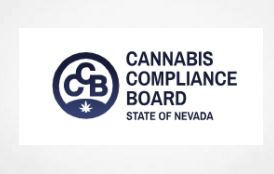Nevada Appeal write…..Representatives from law enforcement to the cannabis industry all praised the plan to regulate the industry in a framework based on Nevada’s successful gaming control system.
Assembly Bill 533 would set up a Cannabis Advisory Commission and the Cannabis Compliance Board mimicking the Gaming Commission and Gaming Control Board. The new agency would take over regulatory issues ranging from licensing to operation of dispensaries, growers, production of cannabis products and testing.
The actual tax collections from medical and retail cannabis products would remain the responsibility of the Department of Taxation.
“It’s long overdue for a Cannabis Compliance Board,” said Chuck Callaway representing the Las Vegas Metropolitan Police Department, which he said supports the new agency.
Callaway was joined by several other law enforcement agencies in supporting the plan.
“The growth of the industry is dependent on instilling confidence,” said Fernando Leal, owner and manager of dispensaries in Reno and Carson City. “This board will do that.”
He was joined by several other cannabis licensees.
Brin Gibson of the governor’s office, who headed the team that developed AB533, said the regulatory structure was modeled extensively after Nevada’s Gaming Commission and Control Board which he described as the best gaming regulatory system in the world.
One thorny issue in the mix is the coming of cannabis consumption lounges. Gibson said by and large, the issue of consumption lounges should be left to local governments — specifically county commissions. He said those bodies should set the regulations for lounges and license them but could be tougher than the state’s regulations.
Several local governments are considering authorizing consumption lounges in the wake of an LCB opinion that those lounges would not violate the statute barring public use of cannabis products because lounges aren’t public.
One of the biggest hangups facing the measure is the amendment sought by the Nevada Resort Association and major gaming companies that would bar any cannabis or marijuana licensee from setting up less than 1,500 feet from a licensed casino. That is half again the distance pot companies must be away from schools.
Virginia Valentine, head of the Resort Association, said the gambling and marijuana industries are “incompatible.” She said a control board licensee could be called forward because of too close proximity to a cannabis business and potentially lose their license. She said they could be called to account by federal regulators and fined or otherwise punished since all cannabis products are still illegal at the federal level.
But Lesley Cohen, D-Las Vegas, vice chair of the Assembly Judiciary Committee, questioned the need for that distance as well as the logic behind it.
“I don’t want our tourists driving to a consumption lounge,” she said. “I want them to be able to walk.”
Nick Vassiliadis representing the Resort association said that concern, “is valid in theory.”
But he said there are Ubers and Lyfts, taxis and other ways for those people to get to and from consumption lounges if they don’t want to walk that far.
In addition, several lobbyists said after the hearing that federal authorities wouldn’t bother a legal, licensed cannabis business operating nearby a casino.
Lawmakers were advised that AB533 is a policy implementation bill creating the board and advisory commission and empowering them to regulate the industry instead of taxation. They were told the money committees have already closed the Cannabis Compliance Board agency budgets.
That means any significant changes to the decisions made by the Judiciary Committee would require reopening those budgets, not something legislative or finance office staff want to do with just two weeks left in the legislative session.
Those committees delayed the start of the CCB and other parts of the new agency until January 2020 because, since recreational marijuana was legalized by popular vote in November 2016, that law can’t be changed for three years and that law directs Taxation to regulate the industry. After that point, the whole regulatory operation can be moved out of taxation and into the newly created CCB agency.
The Judiciary Committee took no action on the bill or the more than 10 proposed amendments to it.


















